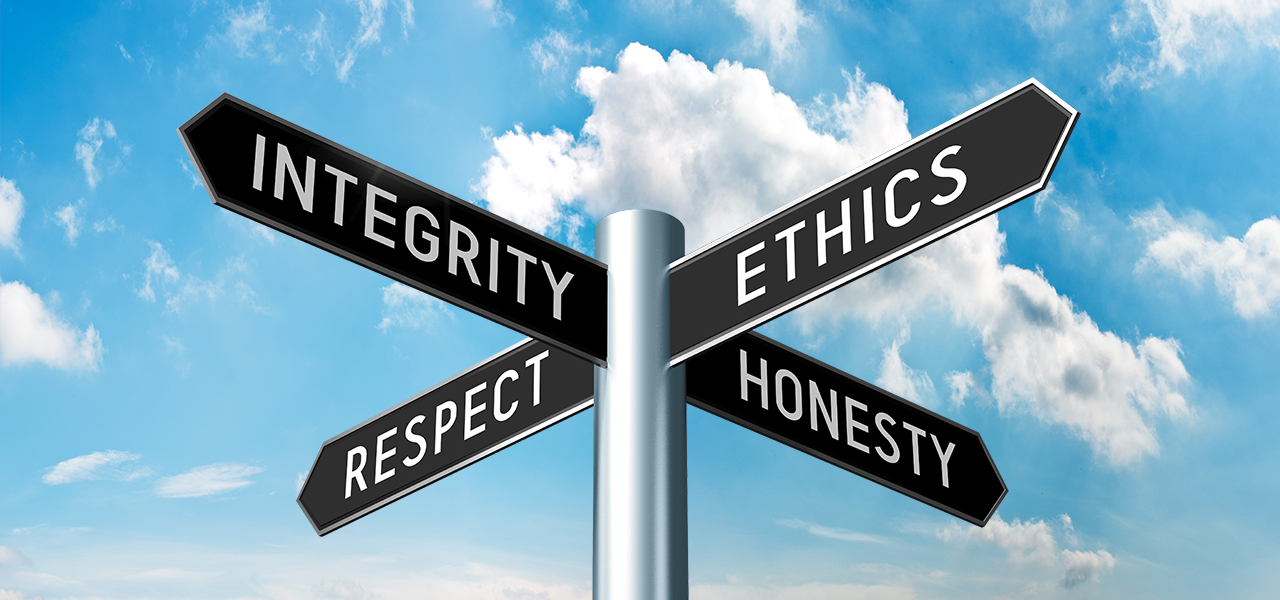Click here to view a video on integrating ethics and what ethics is.
Ethics means applying principles of right and wrong to decisions and behaviour. There are many ethical issues related to work:
Your Personal Integrity
Your integrity governs how hard, well and consistently you work. To succeed in the workplace, you should exhibit a high level of commitment to getting the job done. If you work hard even when you are not being supervised, your employer will trust and promote you. If you work well only under supervision, you will not be trusted or promoted. If you waste time slacking off, you may not last long. You should not only work hard, but also control the quality of your work. High output with lots of mistakes and defects is as bad as low output.
Your Ambition
What you value determines your goals in working. Your ambition drives you to attaining these goals. Some people are willing to compromise ethics and values to attain their goals. They believe, "The ends justify the means." However, the best policy is to maintain a high standard of ethics even if it may delay realising your goals. For instance, you could deceive a customer to make a sale and get a higher commission, but the customer will probably be dissatisfied and return the merchandise.
Your Word
People with high ethical standards live by their word. When you speak to others, you should make sure that what you say is true as far as you know. Do not give the impression that you know an answer when in fact you do not. Never make up answers to questions. You should avoid making promises you cannot keep. And you should never lie to supervisors, co-workers or customers to save yourself.
Your Respect for Property
While at work, you should respect the property of your employer, supervisor, co-workers and customers. You should not steal or damage things which do not belong to you. If you need to borrow something, you should inform the owner and return it promptly when you have finished. You should not abuse your employer's resources, nor use workplace equipment for personal projects without permission.
Your Respect for Others
People with high ethical standards show respect for supervisors, co-workers and customers. They do not use others to attain their own goals. They avoid listening to or spreading gossip. Sexual harassment is the unethical practice of using power in the workplace to achieve sexual favours. It is a form of disrespect which demeans the victim.
Your Relations to Authority
With high ethical standards, you will respect and follow authority if it directs you in an ethical way. However, you could face a tough decision when those in power pressurise you to violate your ethical standards.
Click here to view a video on workplace ethics.

When making each tough decision at work, you should ask yourself these questions:
- Which decision is legal or in compliance with company rules, policies and procedures?
- Which decision is fair to all rather than benefiting one group or person over another?
- Which decision makes me feel good about myself?
The last question relates to your personal values and conscience. Your values provide the basis for your ethical decisions. They influence both what you consider important in life as well as what you consider to be right and wrong. Your values are rooted in your upbringing and background. If you have been taught to follow the Ten Commandments, for instance, you will have a clear sense of right and wrong. This will influence your conscience. Doing right will be a source of positive self-esteem and mental health. Doing wrong will make you feel bad about yourself and lower your self-esteem.